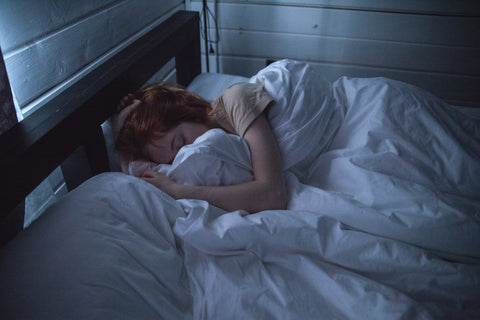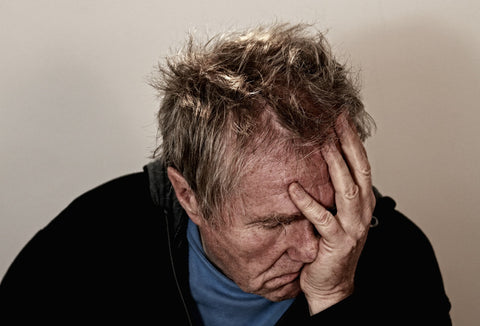
Time to Catch Some Quality Sleep!
Getting a goodnight’s sleep is an important part of a healthy, productive lifestyle. For some, this restful recovery period may be hard to achieve. Insomnia, habitual sleeplessness or the inability to sleep, can affect anyone.
Lack of sleep has a number of adverse effects on your body, your body’s immunity, your intellectual abilities and your ability to function. Sleep deprived people are not as mentally alert or as physically agile as they should be and this in turn can lead to accidents. Many who do not get enough sleep also suffer mood swings. Here are some of the effects of sleep deprivation:
- Slows your central nervous system and decrease your ability to think, move and remember.
- Hormonal changes due to lack of sleep can affect our mood and growth. Hormones are replenished and released during sleep. Testosterone and growth hormones require a minimum of three hours of uninterrupted sleep. Insulin release is also adversely affected resulting in a reduction in insulin sensitivity (effectiveness).
- Hunger and appetite will increase due to hormonal changes increasing your risk for weight gain and obesity. Lack of sleep affects the levels of two hormones, leptin and ghrelin, which control feelings of hunger and fullness.

What is a good night’s sleep? A good night’s sleep varies by individual, on average, adults need between seven and nine hours of sleep each night. However, some people function best with eight hours of sleep, while others do well with six hours. The true test of adequate sleep is a person’s ability to remain awake and function well during the day.
Sleep Problems And Disorders
Some sleep problems are simply due to a poor sleep environment like noise, light, electronic distractions. These are problems that many of us have experienced at some time of our lives. True insomnia is a disorder that can fall into these categories:
- Transient Insomnia - Insomnia that lasts less than a week and does not recur. Transient insomnia often affects older people and primarily women.
- Chronic Insomnia - Chronic insomnia is more persistent and may be caused by several factors including pain associated with medical illness, conditions that impair our ability to move at night or difficulty in breathing. Chronic insomnia may also be the result of psychiatric conditions including clinical depression, panic disorder or anxiety disorder.
- Sleep Disorders - Sleep disorders are physical conditions that interrupt or prevent sleep or cause poor (inadequate). Sleep disorders range from movement disorders, restless leg syndrome, sleep apnea or narcolepsy.

Simple Steps To Counteract Insomnia And Sleep Disorders
The best way to fight insomnia and prevent sleep deprivation is to make sure you get adequate, uninterrupted and restful sleep.The solution may lie in what you eat, what you drink and your sleep hygiene. Sleep hygiene involves developing good sleep habits and breaking bad sleep habits. Here is a sleep hygiene checklist that may help you overcome insomnia:
- Limit daytime naps or avoid them altogether.
- Sleep in complete darkness or as close as possible.
- Go to bed at the same time each night.
- Wake up at the same time every morning.
- Follow your new bedtime schedule during weekends and holidays.
- Avoid caffeine after 5 pm.
- Spend an hour before bedtime enjoying relaxing activities like reading, meditating, or taking a warm shower or bath.
- Exercising regularly, but not within the two-three hours close to bedtime.
- Refrain from using electronic devices (phones, tablets, laptops, etc.) right before bed.
- Avoid alcohol before bedtime.
- Your bedroom should be for sleep, not your office or game room.
Natural Treatments Of Insomnia - Melatonin
Melatonin is a naturally occurring hormone produced by your body's pineal gland. The production and release of melatonin is connected to time of day, and amount of darkness. Once released, melatonin helps you fall asleep. Keep in mind that bright light inhibits the release of melatonin, it will only be produced and released when in a dimly lit environment.
Melatonin supplements are marketed as sleeping pills and are the only hormone available in the United States without a prescription. There is increasing clinical evidence that shows taking melatonin before bed can help you get to sleep. Subjects have also reported a significantly better quality of sleep and melatonin may be especially effective in helping with jet lag, a temporary sleep disorder. The effectiveness and dose required vary greatly by individual, but may be an effective natural treatment.
Overcoming Insomnia And Sleep Disorders
If left untreated, insomnia can have profound negative effects on your life. Uninterrupted, restful sleep (in both length and quality) is extremely important to your body. As seen above, insomnia and the resulting sleep deprivation can lead to serious health problems. Here are five more ways to fight insomnia:
- Relax before bedtime. Find healthy ways to reduce stress and relax. Keep your mind clear and calm before you go to bed. This may sound simple, but many people aren’t able to do this without concentrated effort. Relaxation is very important.
- Avoid stimulants. Do not drink coffee or energy drinks before you go to bed. Caffeine tends to keep you awake and alert and you will find it hard to sleep if you are “wired.”
- Participate in a sleep study. If you continue to suffer from chronic insomnia, consult your doctor and get recommendations for a reputable sleep lab or clinic. A clinical sleep study can help identify the specific disorders that are preventing restful sleep.
- Avoid prescription sleeping pills. Prescription sleeping pills are chemicals that disrupt your natural rhythm of sleep stages and can become very addictive. You may literally become dependent on their use to sleep, and they offer only temporary relief. People who take sleeping pills regularly often become addicted and experience withdrawal symptoms if they try to stop.
- Consider homeopathic cures for insomnia. They are effective, safe and they are not addictive. Homeopathic remedies are herbal extracts which relax both your mind and body and help you sleep. They do not act as a sedative as prescription sleeping pills do. They help you restore your normal sleeping pattern by balancing the hormones involved in the sleep cycle. These natural remedies may be the best solution for overcoming insomnia.
When shopping for homeopathic remedies, look out for ingredients like schisandra chinensis, hypericum perforatum, avena sativa, passiflora incarnata, calcium lactate, magnesium lactate, and vitamin B6. These herbal substances are natural and safe. They help you relax, increase drowsiness, and promote healthy sleep patterns.
Diet And Insomnia
Increasing your consumption of foods rich in B complex vitamins can help combat the effects of stress, depression and anxiety, increasing your likelihood of restful sleep. B vitamins also support the production of neurotransmitters in your brain which promotes restful sleep and a calm, quiet mood. Foods rich in Vitamin B6 and magnesium (whole wheat, bananas, spinach and avocados) help transform tryptophan into serotonin, a substance in the brain that regulates sleep and mood. Vitamin B1 (thiamine) is essential for optimal functioning of the nervous system.
Recent research suggests that there is a link between the lack of calcium in your body and insomnia. Eat more beans, broccoli, almonds and dairy. Olive oil, flaxseed and fatty fish are rich sources of Omega-3 fatty acids that support optimal mental activity, influence mood and improve sleep quality. Magnesium (found in spinach, bananas and avocados) is an important mineral that helps convert tryptophan into serotonin, producing an anti-stress effect.




